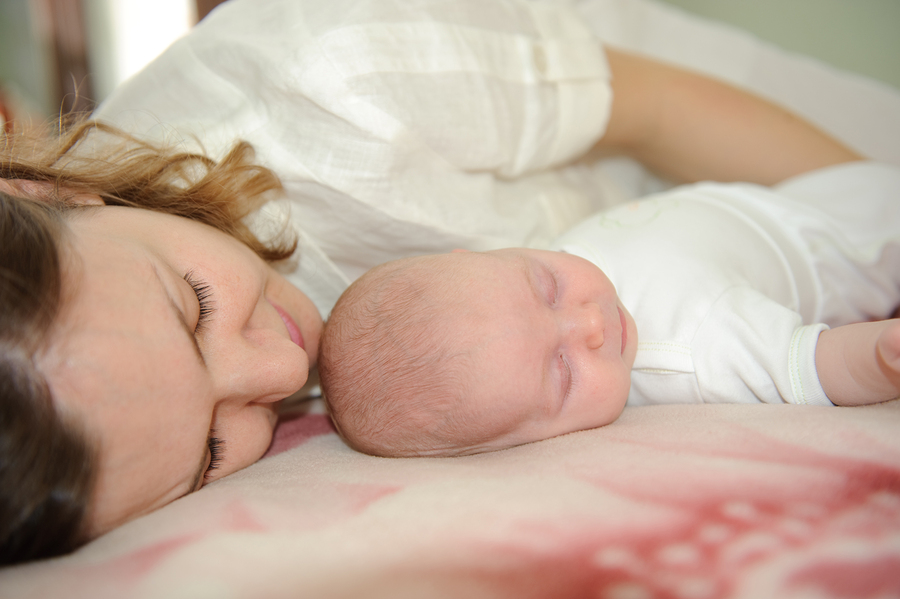(Editor’s Note: Many people believe this is a good idea. Still, others believe it’s less about how important it is for the kids because it’s really about what the parents need…but no matter your opinion let’s keep it civil. All parents ultimately want what’s best for their kids and people execute that differently in their individual families.)
One of the biggest challenges in the first year of parenting is training a child to sleep. Most American parents put their infants to sleep in a separate bed or a separate room, both because they are worried about the dangers of having an infant sleep next to them AND because they want to establish a sleep routine in their home. And Americans are not alone, putting babies in cribs or cots in separate rooms is also the norm Britain, Germany and other parts of Western Europe.
“In most of the rest of the world, however, parent-child co-sleeping is well-established, as we have found in our studies in Africa (Nigeria, Kenya and Zambia), Asia (Nepal, India) and Latin America (Mexico, Colombia) and as other anthropologists have reported from other sites in those areas. Indeed, many parents think it’s downright cruel to have a baby sleep alone. Who would do such a heartless thing?”
While non-Western countries do tend to have higher infant mortality rates, there’s no proof showing a link between mortality and co-sleeping. In fact, Japan parents sleep with their infants and their infant mortality rate is one of the lowest in the world- 2.8 deaths per 1,000 live births (versus 6.2 in the United States) and their rate of SIDS is roughly half of that in the U.S.
But beyond that, biological anthropologist James McKenn believes that co-sleeping isn’t just safe, but also beneficial. After much study at his Mother-Baby Sleep Laboratory at the University of Notre Dame, he’s found detailed evidence of the physiological synchronization between mother and infant when they sleep together, especially when the mother also breastfeeds responsively.
More from the article:
“When we asked mothers of the Gusii tribe in Kenya, where co-sleeping is common, whether their babies slept through the night, they didn’t know what we were talking about — why should babies wake up? When we compare Gusii and American mothers, it is the Americans who seem to make infant care more complicated and difficult by putting their infant to sleep in a separate room, setting the stage for sleep disruption due to infant crying.”
What do you think? Again, I know the opinions on this topic are varied and can be intense. Do you see the benefits of mother-infant co-sleeping as outweighing the risks? There is no doubt that putting baby to bed in a separate room leads to parents having to get up to attend to baby, but not every baby needs attention at night. I’m not sure this issue is as simple as the author would like us to think.
However, what is important is that Americans be more willing to learn and take advice from their counterparts around the world- especially for the good of the humans they are raising- the ones who will live in the global community.
Source: LA Times












